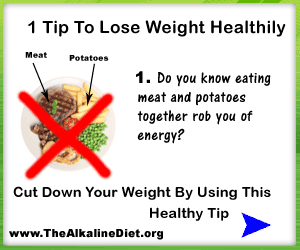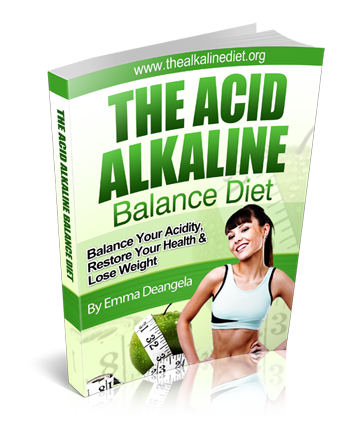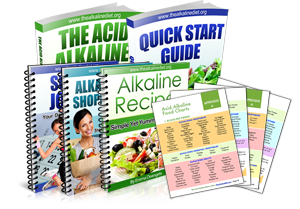What Vegetarians Need to Eat During Pregnancy
June 10, 2017
Foodviki
Tweet
Follow
Tweet


We all know how important it is to eat a diet high in fruits and vegetables, whether we’re pregnant or not. According to the Harvard School of Public Health, diets that include plenty of fruits and veggies can reduce the risk of heart disease, stroke, high blood pressure, certain cancers, eye problems, and digestive problems.
It’s probably not news to you that vegetables are healthy, and they’re even more important during pregnancy when your body is counting on the availability of certain vitamins and minerals to keep you and your baby healthy. A vegetarian diet can be a great starting point for pregnancy as long as certain nutrient requirements are met, and sometimes that means careful planning. Let’s look at a few of the nutrients that vegetarian moms-to-be need to include in their prenatal diets.
20 Weeks Pregnant
1. Protein
Meat is the primary source of dietary protein for people all over the world, but it’s really not difficult to get enough protein from vegetarian sources if you seek out high-protein plant-based foods. These include legumes, nuts, quinoa, and meat substitutes like tofu. A typical American diet doesn’t focus on any of these foods, so it’s important to go out of your way to include them if you’re new to vegetarian eating. Eggs, milk, cheese, and yogurt are also excellent sources of protein for vegetarians who consume eggs and dairy products.
2. Calcium
Dairy products are an excellent source of calcium for vegetarians who include them in their diets. An 8-oz glass of 1% milk contains 305 mg of calcium, almost a third of the 1,000 mg of calcium per day recommended by the American College of Obstetricians and Gynecologists (ACOG) for pregnant women over the age of 19. (The recommendation for pregnant women under 19 is 1,300 mg.)
But expecting vegetarians who don’t consume dairy products may have to turn to fortified foods to get their calcium. There are plant-based sources of calcium like dark leafy greens and certain nuts and seeds, but the amount of calcium these foods contain is relatively small. A cup of chopped kale only contains 101 mg of calcium, and an entire cup of almonds contains 243 mg of calcium. Since it’s not realistic (or necessarily healthy) to eat enough of these sources each day to get your 1,000 mg of calcium, you may want to consider fortified breakfast cereals, fortified orange juice, or fortified milk substitutes, all of which can be excellent sources of calcium. Just check the nutrition label.
Living With Celiac Disease
3. Vitamin B12
Another important nutrient that can be difficult to include in a vegetarian or vegan diet is vitamin B12. This nutrient is so important and so easily overlooked that The Vegan Society has addressed the dangers of B12 deficiency in an open letter on their website. And it’s not just vegans who are in danger of B12 deficiency. Vegetarians who include dairy in their diet only occasionally aren’t getting enough B12 from those sources, and low B12 has been linked to neural tube defects in babies.
Vegetarians who don’t eat meat but will consume fish (pescatarians) can get enough B12 by eating low-mercury fish like salmon or Atlantic mackerel (be cautious of other types of mackerel that may be high in mercury). But vegetarians who don’t consume dairy or fish will probably have to turn once again to fortified foods. If the amounts of B12 in fortified foods look small, that’s ok. According to the National Institutes of Health, 2.6 micrograms per day is the recommendation for pregnant women.
Some vegetarians use supplements to get enough B12, but that’s usually not necessary. As always, you should check with your doctor before taking any supplements, and make sure to check the label on your prenatal vitamin before considering additional supplements.
The safest way to make sure you’re getting all the nutrients you need for a healthy pregnancy from a vegetarian diet is to ask your care provider and make sure they’re aware of your dietary restrictions. They may go over your diet plan with you or refer you to a nutritionist.
Foodviki
TweetFollowTweet




We all know how important it is to eat a diet high in fruits and vegetables, whether we’re pregnant or not. According to the Harvard School of Public Health, diets that include plenty of fruits and veggies can reduce the risk of heart disease, stroke, high blood pressure, certain cancers, eye problems, and digestive problems.
It’s probably not news to you that vegetables are healthy, and they’re even more important during pregnancy when your body is counting on the availability of certain vitamins and minerals to keep you and your baby healthy. A vegetarian diet can be a great starting point for pregnancy as long as certain nutrient requirements are met, and sometimes that means careful planning. Let’s look at a few of the nutrients that vegetarian moms-to-be need to include in their prenatal diets.
20 Weeks Pregnant
1. Protein
Meat is the primary source of dietary protein for people all over the world, but it’s really not difficult to get enough protein from vegetarian sources if you seek out high-protein plant-based foods. These include legumes, nuts, quinoa, and meat substitutes like tofu. A typical American diet doesn’t focus on any of these foods, so it’s important to go out of your way to include them if you’re new to vegetarian eating. Eggs, milk, cheese, and yogurt are also excellent sources of protein for vegetarians who consume eggs and dairy products.
2. Calcium
Dairy products are an excellent source of calcium for vegetarians who include them in their diets. An 8-oz glass of 1% milk contains 305 mg of calcium, almost a third of the 1,000 mg of calcium per day recommended by the American College of Obstetricians and Gynecologists (ACOG) for pregnant women over the age of 19. (The recommendation for pregnant women under 19 is 1,300 mg.)
But expecting vegetarians who don’t consume dairy products may have to turn to fortified foods to get their calcium. There are plant-based sources of calcium like dark leafy greens and certain nuts and seeds, but the amount of calcium these foods contain is relatively small. A cup of chopped kale only contains 101 mg of calcium, and an entire cup of almonds contains 243 mg of calcium. Since it’s not realistic (or necessarily healthy) to eat enough of these sources each day to get your 1,000 mg of calcium, you may want to consider fortified breakfast cereals, fortified orange juice, or fortified milk substitutes, all of which can be excellent sources of calcium. Just check the nutrition label.
Living With Celiac Disease
3. Vitamin B12
Another important nutrient that can be difficult to include in a vegetarian or vegan diet is vitamin B12. This nutrient is so important and so easily overlooked that The Vegan Society has addressed the dangers of B12 deficiency in an open letter on their website. And it’s not just vegans who are in danger of B12 deficiency. Vegetarians who include dairy in their diet only occasionally aren’t getting enough B12 from those sources, and low B12 has been linked to neural tube defects in babies.
Vegetarians who don’t eat meat but will consume fish (pescatarians) can get enough B12 by eating low-mercury fish like salmon or Atlantic mackerel (be cautious of other types of mackerel that may be high in mercury). But vegetarians who don’t consume dairy or fish will probably have to turn once again to fortified foods. If the amounts of B12 in fortified foods look small, that’s ok. According to the National Institutes of Health, 2.6 micrograms per day is the recommendation for pregnant women.
Some vegetarians use supplements to get enough B12, but that’s usually not necessary. As always, you should check with your doctor before taking any supplements, and make sure to check the label on your prenatal vitamin before considering additional supplements.
The safest way to make sure you’re getting all the nutrients you need for a healthy pregnancy from a vegetarian diet is to ask your care provider and make sure they’re aware of your dietary restrictions. They may go over your diet plan with you or refer you to a nutritionist.






















0 comments